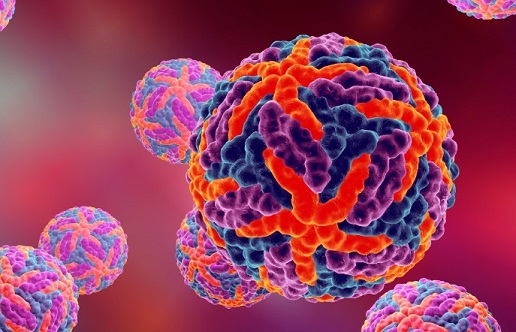Nikhil Prasad Fact checked by:Thailand Medical News Team Mar 13, 2025 1 month, 1 day, 7 hours, 26 minutes ago
Medical News:
Understanding the Immune Response in Dengue
Dengue fever, a mosquito-borne disease affecting millions worldwide, remains a significant health challenge. Severe cases often involve an excessive immune response, leading to life-threatening complications. A new study by researchers from the National Institute of Immunology (India), All India Institute of Medical Sciences (India), La Jolla Institute for Immunology (USA), and the University of California, San Diego (USA) sheds light on a critical immune mechanism involved in dengue infection.
 New Insights into How T Cells Influence B Cell Response in Dengue Infection
New Insights into How T Cells Influence B Cell Response in Dengue Infection
This
Medical News report highlights how a specific subset of T cells plays a major role in regulating the body's immune response to the dengue virus. The findings could have significant implications for vaccine development and treatment strategies.
Discovery of a Key T Cell Subset
The research focused on CD4+ T cells, which help coordinate immune responses. Scientists identified a previously unrecognized subset of these cells, known as peripheral PD-1+ T cells, that accumulate in patients with severe dengue. These cells appear to play a crucial role in influencing B cell activity, particularly through the production of interleukin-21 (IL-21), a signaling molecule that drives antibody production.
Using advanced single-cell sequencing techniques, researchers found that these PD-1+ T cells are diverse, with some having a "helper" function while others exhibit cytotoxic properties. The study revealed that the IL-21-producing subset of these cells significantly contributes to the extrafollicular B cell response, meaning they help generate antibodies outside traditional germinal centers found in lymph nodes.
How These Findings Impact Dengue Research
This discovery is crucial because the immune response in dengue is known to be complex and sometimes harmful. In severe cases, excessive antibody production can lead to a dangerous phenomenon called antibody-dependent enhancement (ADE), where the virus is actually helped instead of being destroyed. The study suggests that the IL-21+ T cell subset may be a key driver of this immune response, offering new insights into why some patients develop severe disease.
Another significant finding is that these T cells remain detectable in patients even after they have recovered. This suggests that they might play a role in long-term immunity and could be a target for new vaccine strategies aimed at preventing severe dengue infections.
Implications for Vaccine Development
Current dengue vaccines have faced challenges due to the complexity of the immune response. The study’s findings highlight a potential new approach by focusing on the role of IL-21+ T cells. A vaccine that modulates this immune pathway could potentially improve protection while minimizing harmful immune overreactions.
Additionally, this research opens
the door to therapies that might selectively target these T cell subsets to regulate the immune response in severe dengue cases. Understanding the interaction between T cells and B cells in dengue infection provides valuable insights that may extend to other viral diseases as well.
Study Limitations and Future Directions
While the findings are promising, researchers acknowledge some limitations. The study involved a relatively small sample size, and further research is needed to confirm these results in larger and more diverse populations. Additionally, the study did not directly observe interactions between IL-21+ T cells and B cells in infected tissues, making this an area for future investigation.
Despite these limitations, the study provides a strong foundation for further research into immune mechanisms in dengue. Scientists are now exploring how these findings could be translated into practical applications for disease management.
Conclusion
This study offers groundbreaking insights into how a specific T cell subset influences the body’s immune response to dengue virus infection. By identifying the IL-21+ peripheral T cells as key regulators of B cell activity, researchers have uncovered a potential target for improving dengue treatments and vaccine strategies.
As dengue cases continue to rise globally, understanding these immune pathways could be crucial in developing more effective preventive and therapeutic approaches. Further research will help refine these findings and explore their potential applications in combating not only dengue but other infectious diseases as well.
The study findings were published in the peer-reviewed journal: Cell Reports
https://www.sciencedirect.com/science/article/pii/S2211124725001378
For the latest Dengue News, keep on logging to Thailand
Medical News.
Read Also:
https://www.thailandmedical.news/news/daidzin-from-soybean-shows-potential-in-fighting-dengue-virus
https://www.thailandmedical.news/news/new-research-uncovers-broad-spectrum-antiviral-potential-of-diphenylureas
https://www.thailandmedical.news/news/virus-induced-pathogenic-antibodies-lessons-from-long-covid-and-dengue
https://www.thailandmedical.news/articles/dengue-news
https://www.thailandmedical.news/pages/thailand_doctors_listings
https://www.thailandmedical.news/articles/hospital-news
